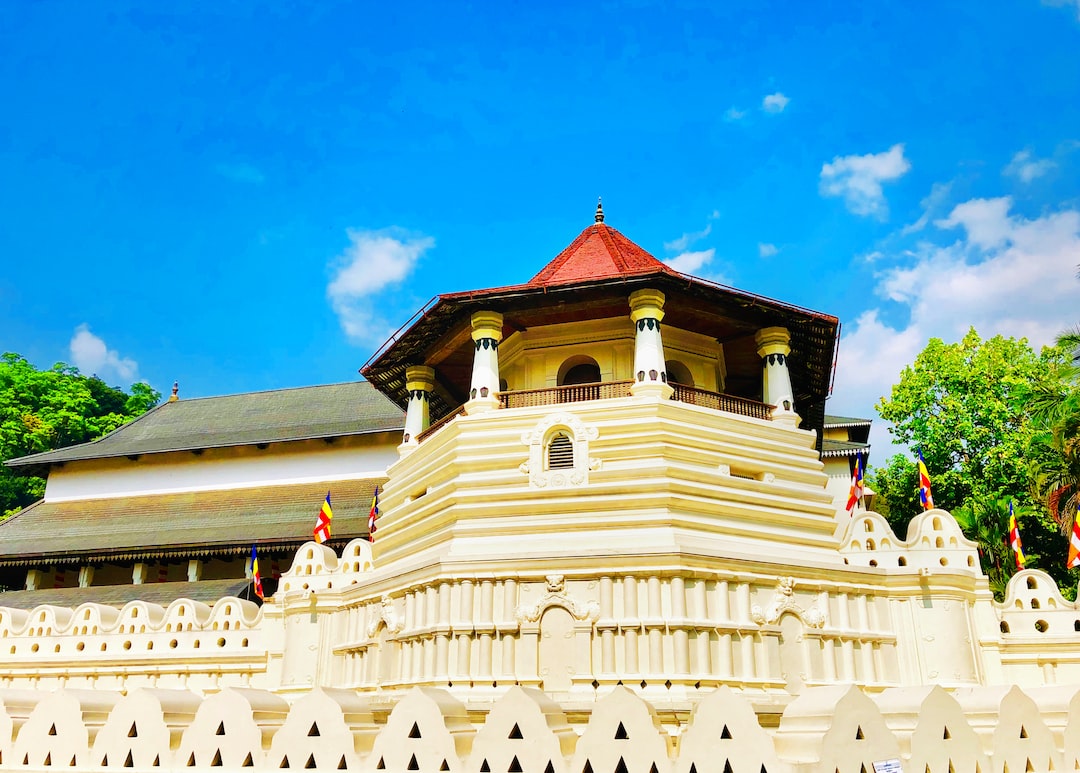Are you looking for an unforgettable wedding experience? Then look no further than Sri Lankan Wedding Traditions.
From pre-wedding customs to post-wedding traditions, there is something special and unique about the ceremonies that take place in this culture.
Discover the cultural customs and superstitions associated with weddings here, as well as what goes on during a traditional Sri Lankan wedding day.
Whether it’s learning more about rituals or just being inspired by different practices, dive into these fascinating Sri Lankan wedding traditions today.
Sri Lankan Wedding Traditions
Pre-Wedding Traditions
In Sri Lanka, pre-wedding traditions are an important part of the wedding process. These rituals help to ensure that both families are happy with the union and provide a chance for them to get to know each other better.
1. Engagement Ceremony
The engagement ceremony is typically held at either the bride or groom’s home and involves exchanging gifts between the two families.
This symbolizes their commitment to one another and marks the beginning of their journey together as a married couple. During this ceremony, family members may also exchange blessings for good luck in the future.
2. Bride’s Henna Night
The bride’s henna night is usually celebrated several days before her wedding day and involves applying intricate designs made from henna paste onto her hands and feet.
This tradition has been practiced for centuries in many cultures around the world, including Sri Lanka, as it is believed that it brings good luck and protection against evil spirits on her special day.
On this night, friends and family will gather around her while she gets ready for her big day ahead.
3. Dowry
Dowry negotiations take place between both sets of parents prior to marriage, where they discuss what items will be given by each side during or after marriage, such as jewelry, furniture or money etc., depending on what customs dictate within their culture, religion, and community.
It is seen as a way of honoring both sides of the family by acknowledging all contributions made towards making this union successful.
Pre-Wedding Traditions are an integral part of Sri Lankan weddings, with customs such as the engagement ceremony, henna night, and dowry negotiations all adding to the beauty and excitement of the wedding day.
Wedding Day Traditions
4. Garlands
The exchange of garlands is a traditional ritual that takes place on the day of the wedding.
It symbolizes mutual respect and admiration between the bride and groom as they honor each other with flowers.
The couple will typically stand facing each other while exchanging garlands three times in a clockwise direction.
This is an important part of Sri Lankan weddings and signifies their commitment to one another.
5. Oil Lamps
Lighting an oil lamp is also a popular tradition at Sri Lankan weddings.
This ritual involves lighting two lamps representing the union of two souls coming together in marriage.
The flame from these lamps is said to bring good luck to the newlyweds throughout their married life together.
6. Seven Steps
Taking seven steps around a fire is another custom that has been practiced for centuries in Sri Lanka during wedding ceremonies.
This symbolic gesture represents taking seven vows or promises, such as faithfulness, loyalty, love, understanding, friendship, trustworthiness, and respect for one another’s families and cultures.
As they take these steps around the fire together, it serves as a reminder of their commitment to each other through thick and thin over time until death do them part.
From the traditional exchange of garlands to the sacred seven steps around the fire, wedding day traditions in Sri Lanka are steeped in centuries-old customs and rituals.
Post-Wedding Traditions
After the wedding ceremony is complete, there are several post-wedding traditions that take place in Sri Lanka.
These activities help to celebrate the newly married couple and ensure they have a memorable start to their marriage.
7. Reception Party and Banquet
A reception party is held after the wedding ceremony, where family members, friends, and other guests come together to congratulate the bride and groom on their union.
The banquet usually follows this event with a traditional feast of rice dishes accompanied by various curries.
This celebration can last for days as everyone comes together to enjoy food, music, dancing, games, and more.
8. Gift Giving and Blessing Ceremony
After the reception party or banquet has ended, it’s time for gift-giving. Guests will bring gifts such as jewelry or money for the bride, which symbolizes good luck in her new life with her husband.
Following this tradition is a blessing ceremony where elders from both families bless them before they leave for their honeymoon trip.
As part of post-wedding traditions, couples often go on a honeymoon trip either to a temple or resort, depending on what suits them best.
Visiting temples allows couples to seek blessings from deities. At the same time, resorts offer an opportunity for relaxation away from home in luxurious settings with amenities such as spas and pools available at some locations too.
Post-wedding traditions in Sri Lanka are full of joy and celebration, with various customs to ensure the newlywed couple is blessed for their future.
Moving on from these festivities, cultural customs and superstitions play an important role in Sri Lankan weddings as well.
Cultural Customs and Superstitions
9. Customs and Superstitions
When it comes to weddings in Sri Lanka, some many cultural customs and superstitions help make the day special.
One of these is wearing colorful attire for both bride and groom. It’s customary for the bride to wear a sari or lengha choli, while the groom wears a sherwani or kurta pyjama.
These vibrant colors represent joy and happiness on this special occasion.
10. Music and Dancing
At a Sri Lankan wedding, traditional music is often played to celebrate the occasion.
Popular songs include dance numbers such as Baila and Kandyan music.
Guests can be seen singing and dancing along to these classic tunes throughout the night.
Traditional drummers are also often present to add an extra rhythmic element to the celebration.
Guests can enjoy traditional folk songs performed by local musicians and popular Bollywood hits from India. The couple may even join in on some of the dances.
11. Food
Sri Lankan weddings are known for their delicious food. Traditionally, a range of dishes are served at the wedding feast, including curries, rice, and vegetarian options.
Sri Lankan desserts like puttu and kiribath (milk rice) are also popular treats served on these occasions.
Though certain foods should be avoided on the wedding day for good luck, according to superstition.
This includes seafood, bitter vegetables like bitter gourd or neem leaves, and anything made with tamarind paste such as pickles or chutneys.
Eating these items could bring bad luck to newlyweds.
These cultural customs and superstitions have been passed down through generations in Sri Lanka and still remain an integral part of weddings today.
They add extra meaning to this already momentous occasion by bringing families together in celebration while honoring traditions that have been around for centuries.
Conclusion
Sri Lankan wedding traditions are full of culture and customs that make them unique. From pre-wedding rituals to post-wedding celebrations, each step is filled with meaningful symbolism.
These traditional ceremonies have been passed down for generations, and it’s a great way to honor your heritage while celebrating the union of two families.
Whether you’re looking for ways to incorporate these customs into your special day or just curious about what makes Sri Lankan weddings special, understanding these traditions can help create an unforgettable experience.




